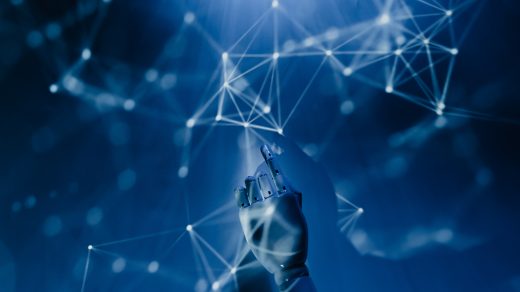
When someone asks you ¨Who are you?”, what do you think of?
Do you think of your name? Do you think of the body you are in? Or do you think of your mind inside your body? Do you think of the place you hold amongst relationships such as friends, family, clubs, etc.? Do you think of your Facebook or Instagram profile, which pretty much aims at creating an online-self, in other words, a digital part of you?
¨Who are you?¨ or ¨Who am I?¨ are not easy questions to answer, because no matter how hard we would think, our perception of self is not only tied to us but people in relations to us. We exist in our head, in the stories we tell and pictures we see, but also in the memories of others, in the pictures of others, and in the perception of others. (which more often than not gives me a ton of anxiety haha)
This where the concept of self comes in, the interplay of “I” and “Me,” which allows for a personal perspective of oneself. The main key to differentiation is thus the self. Everyone has a self, but the self itself (lol) is constructed of various parts.
What follows is a rough division of the ¨I” s that allow each of us to be our self and perceive ourselves as ourselves.
Body-I = tells me that the body I´m living in is mine
Position-I = tells me where I am
Perspective-I = tells me I am the centre of the life I am living
Experience-I = tells me that my feelings and stimulations are actually mines, and not others
f.ex. a memory is a personal perspective from the past
Author/Control-I = asserts that my actions and thoughts are mine
Autobiographical-I = makes sure I stay myself (that I don´t fall out of the film)
-> I experience my life always as the same person
Self-Reflective-I = allows me to think about the different I´s and Me´s
-> the “I” acts , the “Me” reflects and judges
Moral-I = kinds like our consciousness, what we distinguish as good or bad
Now, that we got a little philosophical / neuropsychological crash course into the multiple existence of varying selfs, you might wonder, what does this have to do with the Digital? And to this I reply, you would be impressed by how I can connect seemingly unrelated topics in a beautiful constructivist way.
And what does constructivism does best? Take apart, study, put back together, study more, and give commentary.
While philosophers have all day to think about the intricacies of the I’s and Me’s, the average person has no time to concern themselves with this. They have to work, go meet friends, feed their dog, VOTE, help at the animal shelter, write an essay, get their nails did, and, and, and!!! There is stuff to do, and the day only has 24hrs. So when do we have time to reflect on ourselves?
The Digital – I
*insert phone break*

Ah, there I am! I always have myself with me. Want to see me as a kid? How about a video of my 15th birthday? Maybe some pics of my volunteer work? What do you wanna know, I got it all!
Our Digital-Self is very much real. We even have laws that protect it, because we as people decided that our Online-selves were owed rights, as we often see them as extensions of ourselves, or at the very important personalised digital chest. The Digital-Self is really just at its start, as technology progresses and more and more of our selves can be digitised at will (or force, sorry for more dystopian authoritarianism in my post). Despite this, we should not forget the initial I´s that made us up, and what effect might come when we put too much importance into an accumulation of selves that is the Digital-I. Mental Health Issues have to be brought up in this context, because messing with one of the I´s can bring a lot of problems ranging from depression brought on by a weak Perspective-I, or psychosis through malfunctioning perceptions of the Author/Control-I or the Autobiographical-I.
The I’s we are made up of, are very complex and subjectively different to each but remain fascinating to think about. The concept of I is very much existent, and it should not be forgotten as we are heading into a more and more digitally invasive world. To conclude this constructivist blog on digital selves, some words of encouragement.
Reflect on yourself, as a person, as a friend, as a sibling, as a memory, as a story. You’re a multitude of puzzle pieces on a journey to discover where they all belong. To think that you once were You, but now you are so many more You’s than you thought you could be, and who knows how many more You’s you’re still gonna become 🙂
“Do I contradict myself? Very well, then I contradict myself;
Walt Whitman
I am large, I contain multitudes.”



Oh I like your title! I have had a version of this conversation with a few people and we too concluded that your You is based on the people around you. Do you think that people’s digital-I is becoming too strong of an I? If so, who should do the protecting?